The Joke of Eradicating Online Gambling
The investigation into the Communication and Digital Affairs Ministry employees backing online gambling is expanded to include many people. Ill-gotten gains from a political operation.
maaf email atau password anda salah

The investigation into the Communication and Digital Affairs Ministry employees backing online gambling is expanded to include many people. Ill-gotten gains from a political operation.

The presence of Hashim Djojohadikusumo at COP29 in Azerbaijan was considered as bearing a conflict of interests. He was promoting the business of Arsari Group.
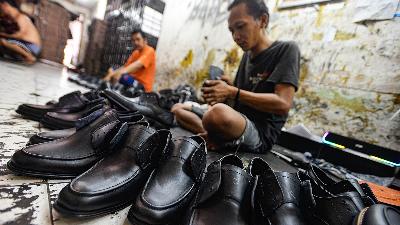
The disbursement of People’s Business Credit faces numerous challenges. Farmers and small business owners are vulnerable to loan sharks and middlemen.
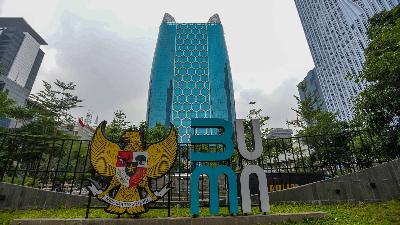
The plan for a super-holding for state-owned enterprises dates back to the New Order era. The SOEs Ministry will be replaced by a giant corporation.

With the Supreme Court’s judicial mafia, when one branch is lopped off, another 10 grow in its place. It needs to be comprehensively cleaned up.

The Supreme Court dismissed three judges suspected of accepting bribes in the Ronald Tannur case. This adversely impacts efforts to improve the judiciary.

Judicial Commission Chair Amzulian Rifai on the corruption in judicial institution involving judges.

Driven by corporate demand, helicopter business opportunities continue to grow. Operators are increasingly expanding their fleets.

There is an increasingly real threat to Indonesia’s biodiversity. It cannot be overcome through empty slogans at international forums.

KPU Chair Mochammad Afifuddin on turbulence within his institution following the dismissal of Hasyim Asy’ari, and the Constitutional Court’s decision on the regional head elections.
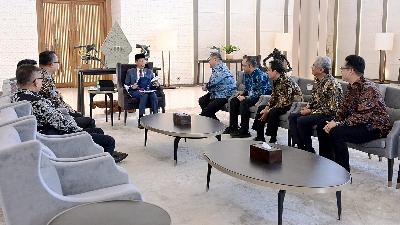
Various parties from the National Police Chief to the State Palace are accused of interfering in the KPK leadership candidates selection process. The candidates are divided into four clusters.

Tempo’s interview with Minister of Communication and Informatics Budi Arie Setiadi about Jokowi’s campaign before the end of his tenure.

As President Jokowi's term neared its end, instructions were given to promote the government's achievements, and billions of rupiah in contracts were offered to the media.
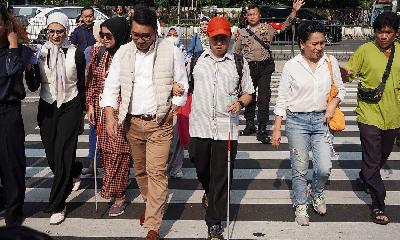
Jakarta governor and deputy governor candidates promise improvements in inclusive public transportation.
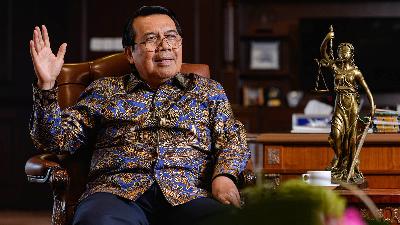
Supreme Court Chief Justice Muhammad Syarifuddin uses artificial intelligence to handle cases. Case brokers continue to be a threat.

Media companies are experiencing upheaval due to the rapid changes in the business landscape. The industry is moving towards a new equilibrium.

Using a variety of pretexts, the political parties replace elected legislative candidates. This is a betrayal of the people’s choice.

Hendra Sabarudin’s drug network distributed methamphetamine from Tarakan prison starting in 2017, allegedly aided by police and prison guards.

The government plans to dredge 17.6 billion cubic meters of sea sand and sediment, altering the landscape and destroying marine life.

The government designated a number of areas as zones for cleaning sediment and sea sand.

Anindya Bakrie ousts Arsjad Rasjid from the position of General Chair of the Indonesian Chamber of Commerce and Industry (Kadin). The Palace’s support shifted.

Anindya Bakrie ousted Arsjad Rasjid as the Chair of the Indonesian Chamber of Commerce and Industry (Kadin). The organization is becoming like a political party and enjoys large funds coming in from overseas.

Gubernatorial candidates are trying to win over the votes of Anies Baswedan supporters in the Jakarta regional election. Jokowi reportedly shifted his support.

Pramono Anung and Ridwan Kamil shed light on the dynamics surrounding their appointments as Jakarta gubernatorial candidates.
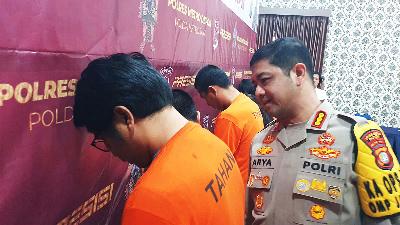
Police uncover baby trafficking syndicate operating in Java-Bali since 2023. Five babies were already sold.
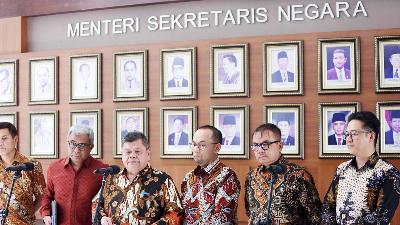
News summary on the conflict of interest of KPK leadership candidates and 44 ministries in Prabowo’s government.
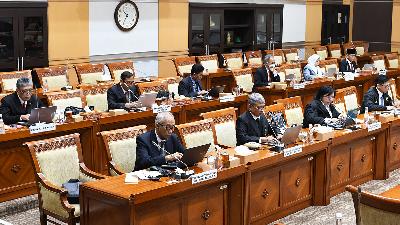
Commission III of the House of Representatives rejected all the Supreme Court judge candidates proposed by the Judicial Commission. The rejection allegedly was due to their favored candidate failed to pass.
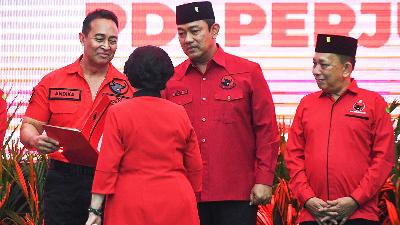
The Indonesian Democratic Party of Struggle (PDIP) strives to counter candidates supported by the Palace. It is an early projection for the 2029 General Elections.

BRIN is designing the Peluit-40 nuclear reactor to replace diesel power plants, claiming it to be safer.
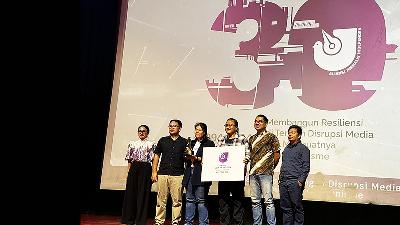
The Bocor Alus Politik podcast receives the Udin Award that we dedicate to our viewers and readers.

An exclusive Tempo interview with Anies Baswedan regarding his chances to run in the Jakarta regional head election.

Jokowi and Prabowo’s coalition are maneuvering to thwart Anies Baswedan’s candidacy in the Jakarta regional head election. Cabinet posts are being offered as inducements.

Tommy Hermawan Lo’s name emerges following the mention of Mr. T in online gambling that involves human trafficking case. He is a director at a casino management company.
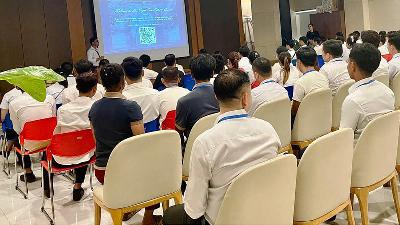
Victims of human trafficking for online gambling and scamming in Cambodia claimed of being forced to work 12-hour shifts and being beaten. Recruitment is still ongoing.

The battle in the presidential election is set to continue in regional head elections. The PDI-P is determined to challenge President Joko Widodo’s candidates.

Personal protective equipment corruption suspect, Budi Sylvana, denied inflicting up to Rp300 billion of losses to the state. He revealed the roles of other officials in the case.
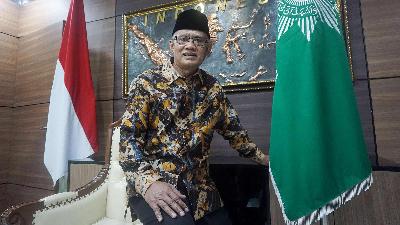
Muhammadiyah follows Nahdlatul Ulama’s step to accept mining concession offer from the government. Muhammadiyah General Chair Haedar Nashir explains about it.
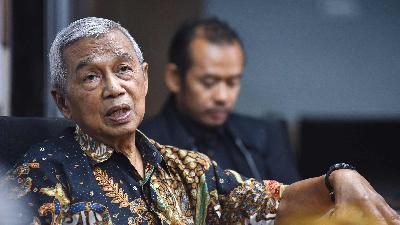
Muhammadiyah accepts the government’s mining concession offer. Many members are against it. Busyro Muqoddas, Chair of Muhammadiyah’s Law and Human Rights Council explains.

Muhammadiyah cadres and administrators are divided in their response to the mining concession. There are whispers from the government and the entrepreneurs.

Retno Marsudi dismissed the idea that the government is merely meddling foreign affairs. She emphasized that Indonesia is a trusted partner on the international stage.
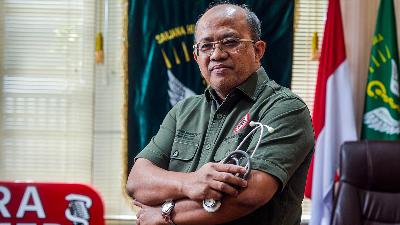
Chair of IDI, Mohammad Adib Khumaidi, discusses the polemic over the plan to allow foreign doctors to practice in Indonesia. He emphasizes stringent regulations are necessary.

Communication and Informatics Minister Budi Arie explains the cyberattack on the Temporary National Data Center. He dismisses allegations of negligence.

Infinite Earth responds regarding the revocation of Rimba Raya Conservation’s ecosystem restoration permit.

There will be a wave of layoffs at Tokopedia as a result of inefficient practices. This is the result of government policy rife with conflicts of interest.

The PDI-P is preparing to replace Hasto Kristiyanto after he was questioned by the KPK in the Harun Masiku case. They are wary of the Palace’s interference.

The founders of GoTo and Tokopedia sold their shares. New investors now have control of ownership.

Tokopedia made significant cuts in its workforce following its business consolidation with TikTok. A consequence of inefficient business operation.

Muhammadiyah’s business networks cover various sectors, from education to financial services. It seeks to create a closed economic ecosystem.

Muhammadiyah withdrew trillions of rupiah from Bank Syariah Indonesia. It was the accumulation of various problems, from operational matters to appointment of commissioners.
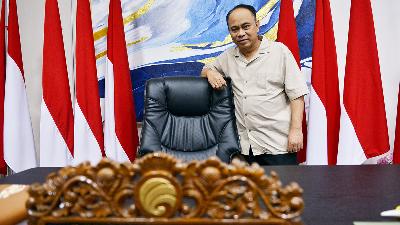
Communication and Informatics Minister Budi Arie Setiadi talks about the polemic over the planned revision of the Broadcasting Law and the Starlink Internet service.

Narendra Modi is likely to serve his third term as the Prime Minister of India. His campaigns are based on populism and religion.

The fintech lending business is increasingly losing steam. Returns continue to decline while fund owners are opting for other investment portfolios.

Tourism and Creative Economy Minister Sandiaga Salahuddin Uno assures that the tourism fee will not be imposed on plane tickets.

The Constitutional Court rejected lawsuits disputing the results of the 2024 presidential election. The option of disqualifying Gibran was discussed in a meeting of the judges.
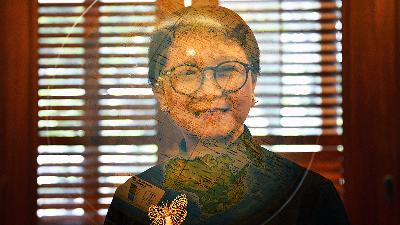
Foreign Affairs Minister Retno Marsudi explains the Gaza war and the Iran-Israel conflict with its impact on Indonesia’s economy.
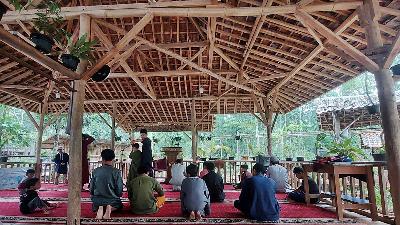
Islamic boarding schools (pesantren) cannot be closed even if they do not have a license from the government. There is no protection from the Ministry of Religious Affairs if legal problems arise.

The Rabithah Alawiyah organization is in charge of recording and preserving the line of descent of the Alawiyyin in Indonesia. Seven books from Yemen serve as their guide.

Several companies are applying for permits to utilize sediment, including sea sand. Large corporations use landfills for land reclamation areas.

Indigenous people are taking legal action against the President and the DPR for delaying deliberations of a bill. It has taken second place to the interests of investors.
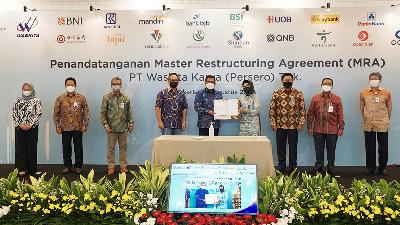
State banks stop distributing loans to state construction companies. Government assignment projects are burdening banks.

The government opens the option of switching energy subsidies for the free lunch program. This threatens poor households.

The government issues a regulation to develop the game industry. There will be a special funding agency.
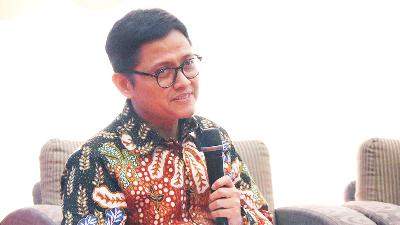
Discussions of the Asset Recovery Draft Law is stagnating in the DPR. It is key to preventing money laundering.

TikTok Shop’s acquisition of Tokopedia changes the Indonesian business map. It is not clear how small and medium enterprises will be protected.
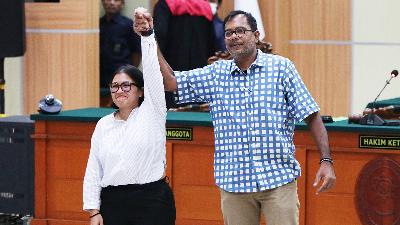
The prosecutor persists in filing a cassation against the acquittal of Haris Azhar and Fatia Maulidiyanti. It is a threat to the freedom of expression.

GoTo CEO Patrick Waluyo reveals the story behind the selling of Tokopedia shares to TikTok. How much profit did GoTo get?

The integration of TikTok Shop with Tokopedia will reinforce GoTo’s business. Indonesia’s e-commerce competition landscape is changing.

The presidential and vice-presidential candidates are relying entirely on gimmicks to exploit the emotions of the people. This moves the campaign away from substantive discussions.

Do the presidential candidates succeed in attracting young voters with social media gimmicks?

Budiman Sudjatmiko persuades other activists to support Prabowo Subianto. He claims he is not motivated by money.

How does the Indonesian Solidarity Party get its funding? Is the aid from conglomerate bosses like Djarum’s owner true?

Presidential Chief of Staff Moeldoko is writing regarding his alleged interference in electric vehicle policy over Wuling’s SNI certification.

Post-Firli Bahuri, the Corruption Eradication Commission (KPK) is still walking backward toward its grave. A radical reform is needed.

The presidential candidates’ campaign teams are an illustration of the type of government they would form if elected. Businesspeople have a central role.

The Corruption Eradication Commission is no longer independent ever since it became part of the executive body. The fruit of the revised KPK Law.
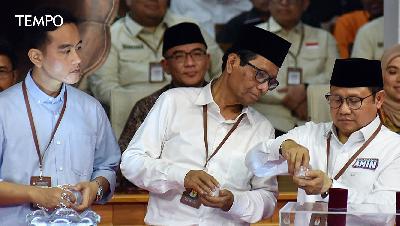
In Indonesia, presidential candidate debates are planned as bogus performances. There is no in-depth discussion of the issues.

Yet again, a member of the Supreme Audit Agency is involved in corruption. The system for selecting these state auditors is very poor.

Judicial Commission Chairman Amzulian Rifai explains the boundaries of his authority in dealing with judges, and the Judicial Commission Bill.
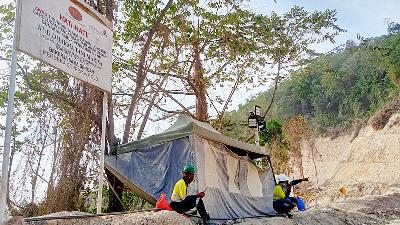
Sandiaga Uno and Garibaldi Thohir’s company is in conflict with local miners. The amount of compensation is considered inadequate.

Having no democratic legitimacy, Gibran Rakabuming Raka must withdraw his candidacy for the vice-presidency.

Tempo's special interview with MKMK Chairman Jimly Asshiddiqie regarding the dismissal of Anwar Usman as Chief Justice of the Constitutional Court.

The program to put coal-fired power plants (PLTU) into early retirement is hampered by funding problems. As grants are stuck, the state budget must be disbursed.

Nepotism is the close relative of corruption and dictatorship. The Indonesian Independence Proclamation places nepotism as a threat to independence.

Constitutional Court Chief Justice Anwar Usman is reportedly maneuvering to lower the minimum age limit for presidential and vice-presidential candidates, paving the way for Gibran.
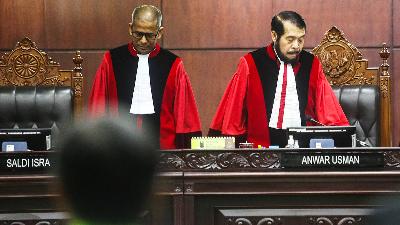
The Constitutional Court reportedly already made a decision in favor of a lawsuit regarding the minimum age requirement for presidential and vice-presidential candidates. The issue is rife with conflicts of interest.

Carbon trading is simply a way to mitigate climate change. The main aims are the energy transition and environmental protection.

The Indonesian Stock Exchange established four carbon trading mechanisms. There were 27 transactions in three schemes in the initial sale.

Presidential candidates’ supporters are creating unfavorable atmosphere in the build-up to the 2024 general elections with them more inclined to speak about rivals’ weaknesses than promoting their champions’ profiles.

The 2024 presidential candidates are competing to garner support from retired generals. This perpetuates the militaristic nature of Indonesian politics.

The plan from the OJK to introduce carbon units as securities could lead to problems. Carbon trading no longer means a reduction in emissions.

The three soldiers who allegedly killed a civilian should be tried in a criminal court. The Military Courts Law needs to be revised.

The OJK regulates carbon exchanges as a securities trading platform. How will the OJK prevent greenwashing in the carbon exchange?

The news in our media is problematic. Why is that?

Voluntary carbon trading has stopped since 2021, due to upside down policies.

Individuals and companies are already implementing carbon trading in the voluntary market. But no price standard has been set.

News summary, from the dismissal on Budiman Sudjatmiko to Food Estate.
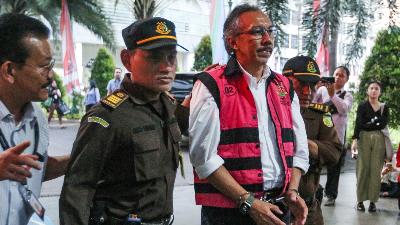
Former Director-General of Mineral and Coal, Ridwan Djamaluddin, is named as suspect in the Mandiodo Block nickel corruption case.

Why did the prominent figures from Papua fail to bring the Papuans to support the Republic of Indonesia?
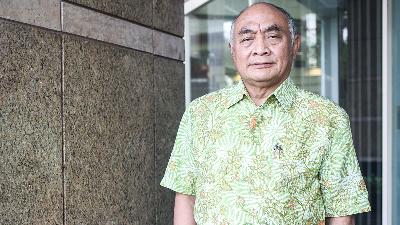
The government faces difficulties accommodating kidney donors and recipients. The need for kidney donors is high, but the supply is very limited.

The police exposes Indonesian kidney trafficking network in Cambodia. The victims are enticed through social media.

PKB General Chair Muhaimin Iskandar explains the odds of his party joining Prabowo Subianto’s coalition.

Many Islamic boarding schools are operating without permits. There needs to be standardization of these religious educational institutions.

Moeldoko has reportedly sent letters to various government officials to clear Wuling’s GB/T charger for the Indonesian National Standards.
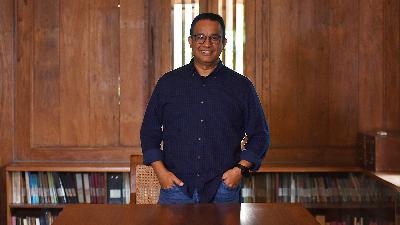
Presidential hopeful Anies Baswedan on the Change Coalition’s compelling needs to choose Muhaimin Iskandar over Agus Harimurti Yudhoyono.

Anies Baswedan choses Muhaimin Iskandar to be his vice-presidential running mate. Agus Harimurti Yudhoyono is eliminated in the final turn.

Anies Baswedan’s presidential running mate, Muhaimin Iskandar, was embroiled in several corruption cases. Yet, he is determined to run for vice-presidency.

The Sahendaruman Protected Forest is under threat of destruction by a gold mining company. The forest is a source of water, a buffer against natural disasters, and the habitat of several endangered endemic bird species.

Solidarity appears sporadically in the midst of an explosion in the numbers of Covid-19 cases. It needs to be supported with examples of cooperation among the elites.

Having established the Animal Defenders Indonesia Foundation in 2011, Doni Herdaru Tona tries to rescue stray dogs and cats from abuse.

ONE of just a few examples of good news from this Corona pandemic is the flourishing of solidarity everywhere.

Opera Gandari by Tony Prabowo was performed for the third time. Director Melati Suryodarmo gave a new interpretation imbued with her personal experience as a woman.
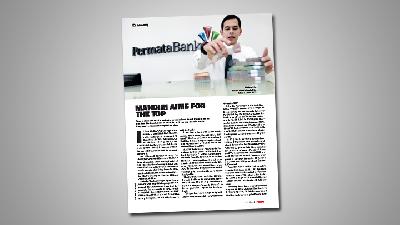
We thank you for the interview request from Tempo and the publication of Standard Chartered Bank Indonesia’s response in the article entitled Mandiri Aims For The Top carried in the April 23-29, 2019 edition.

One mother who is never celebrated is Gandari. She was on the losing side, and is despised.

Solo is the birth place of batik tiga negeri and batik Indonesia. They are the legendary heritage of Chinese Indonesian maestros.
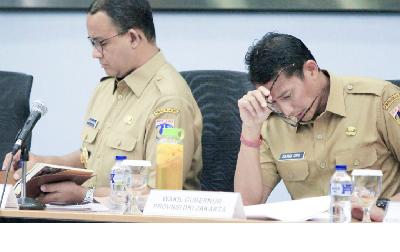
The Supreme Audit Agency (BPK) is accused of applying double standards in its audit of Jakarta’s finances. Several existing problems remain unresolved.

Tana Gayo’s coffee farmers can speak fluently on international quality standards for coffee. Cooperatives are the backbone of Aceh’s coffee production.

THE government has proposed standardizing Friday prayer khatib (preachers or persons delivering sermons) to the House of Representatives (DPR). The proposal, said Minister for Religious Affairs Lukman Hakim Saifuddin, is based on reports about certain preachers who might pose a threat to the unity of the muslim community. "We could use the most moderate standards," said the minister.
Lukman said Friday sermons would be used to discredit people, undermining the sermon's essential function to provide religious counsel. "This can potentially create disunity, especially in the midst of Indonesia's diversity," he said.

When he was still the inspector-general at the Ministry of Finance three months ago, Kiagus Ahmad Badaruddin, 59, was angered by a report on a sum of Rp3 billion that had been deposited into his wife's account. It shook him, particularly since he was being considered for the position of chairman of the Center for Financial Transactions Reporting and Analysis (PPATK).
That report spread to the Presidential Palace and to the finance ministry. Finance Minister Sri Mulyani, who recommended Badaruddin to be PPATK chief, took a deeper look at the report. "She asked me what the money was all about," recounted Badaraddin, or Badar as he is familiarly known.

When he was still the inspector-general at the Ministry of Finance three months ago, Kiagus Ahmad Badaruddin, 59, was angered by a report on a sum of Rp3 billion that had been deposited into his wife's account. It shook him, particularly since he was being considered for the position of chairman of the Center for Financial Transactions Reporting and Analysis (PPATK).
That report spread to the Presidential Palace and to the finance ministry. Finance Minister Sri Mulyani, who recommended Badaruddin to be PPATK chief, took a deeper look at the report. "She asked me what the money was all about," recounted Badaraddin, or Badar as he is familiarly known.

Corruption is suspected in the procurement of the TNI's six new sets of radars. The BPK and the KPK must be given access to scrutinize the transaction.

The attention given to the police, in particular Counterterrorism Detachment 88 (Densus 88), over for the questionable death of Siyono, cannot be disassociated from the role of the Muhammadiyah. This religious organization founded by K.H. Ahmad Dahlan has been the driving force advocating justice for Siyono's family. But this has led to charges that Muhammadiyah is pro-terrorism.
Haedar Nashir, 58, chairman of Muhammadiyah's executive board, stated that support for Siyono's family was purely in the interest of humanity. "In addition to looking after humanitarian values, we also have an interest in seeing that the law is enforced," said Haedar.

Do you remember the first time when Melati Suryodarmo appeared in the Indonesian art world after having lived for some time in Germany? That was back in 2005. At the Goethe-Institut in Jakarta, she presented a work entitled Exergie-Butter. On the wooden stage at the Goethe-Institut was a large pat of butter.
Melati calmly walked onto the stage, her stocky body covered with a tightly fitting black body stocking. She had bright red high-heel shoes on. She then walked onto that spot of slippery butter, immediately slipping and falling. She tried to stand back up, but slipped and fell right back down. She seemingly 'danced' on those sticks of butter. After every slip, slide and fall, she would stand back up.

ON the first day that Anies Baswedan began his job as minister for culture and elementary and secondary education a year ago, he knew there would be piles of work ahead of him. Among the many issues that needed to be sorted out was the scarcity of teachers in Indonesia's remote areas. Yet, statistically, there should have been enough teachers to go around. The student-teacher ratio is around 16 to 1. "That's an excess, while in South Korea, the ratio is 30 to 1. Ideally it should be 25 to 1," said Anies, admitting that the problem in Indonesia was one of unequal distribution. In some places such as Papua, the ratio dropped significantly to 75 students for every teacher. So, in May this year, the education ministry initiated the Guru Garis Depan (Frontline Teachers ) program to address the shortage of teachers in the outer parts of the country. So far, 798 teachers have been sent out to teach at 28 regencies. Next year, the number is expected to increase to 3,500. Anies discussed the Frontline Teachers initiative with Tempo English reporters Sadika Hamid, Syari Fani and Amanda Siddharta. Excerpts:

AS an endocrinologist, Sidartawan Soegono, 71, has been dealing with diabetes for more than 20 years. Decades ago, the disease was often associated with the rich because of the common impression of it being linked to unhealthy diets and lifestyle. But today, even the poor are susceptible to diabetes. "There are many people in villages who also suffer from the disease. In 2007, the prevalence rate in North Maluku was more than 11 percent, as well as in West Kalimantan, larger than in Jakarta. So it can happen to anyone," said Sidartawan.

Imported used clothing has fast begun flooding the markets around the country. It is not only sold in stores, these second-hand goods are now available in malls, and even offered online. Although it is banned with the reason that it could impact the local textile industries and that it is 'undignified' for our consumers, the government admits it is having a difficult time restricting the sales of imported second-hand clothes. "We need a tougher law," said Widodo, who is director-general of standardization and consumer protection with the trade ministry at his office, last week.

To include tempe (fermented soy bean cake) in the menu of renowned European restaurants was a challenge for Ari Munandar, the executive chef of the restaurants at the Hilton Prague Old Town, a five-star hotel in the capital city of the Czech Republic.
Tempe is not new in what used to be a part of Czechoslovakia. Usually it is part of the vegan menu, well known only among the vegetarians. "Tempe is not in the daily menu of normal restaurants," Ari wrote to Tempo by email last week.

SRI Roso Sudarmo seemed to be really enjoying his retirement when Tempo visited him at his home one late afternoon last August. He was watering the lawn and the plants in front of his house in Sleman, a suburb of Yogyakarta. Clad in a T-shirt over a sarong, the 67-year-old former bureaucrat and army man, stood close to his Honda car, parked in front of the garage. His property, as big as a volley-ball court, was shaded by trees, giving an impression of coolness and serenity. "I know why Tempo has come all this way, it must be in the pursuit of news," said the former army colonel, greeting Tempo effusively.
For more than a decade, Sri Roso refused to be interviewed by the media regarding Udin, the journalist who was assassinated some years ago in Yogyakarta. Just prior to the interview, he even asked that we seek information from other sources. He relented only after he was convinced that his version of events was required to ensure a balanced report. "Let's not make it too long then, I must finish up watering the plants," he said. He then excused himself to change into a pair of trousers and shirt, combing his hair to look more presentable.

INDONESIA remains a target of syndicated drug dealers. According to the chairman of the National Narcotics Agency (BNN), Police Comr. Gen. Anang Iskandar, out of 60 entry points throughout Indonesia, only six are manned by well-equipped officials. Kalimantan's border areas are part of those vulnerable and under-guarded frontiers. "That's a red zone," said Anang, in an interview with Tempo last week.
Why is Indonesia such a target of international narcotics syndicates?

Revolution always rages before curfews. With fervor. Once the revolution is over, the raging stops. The fight, even the violence, has borne fruit; it is over, and now an order and sovereignty is established: a cold construction with straight lines.
I am reminded of the film Lewat Jam Malam (Past Curfew) for which Asrul Sani wrote the scenario. It was produced just a few years after Indonesia's fight for independence. In it, an ex-guerilla fighter named Iskandar feels alienated when he returns to normal life after the struggle is over and the Republic has started to work as a government.

Ridwan's research about Mandar's maritime culture has earned him recognition all over the world. Despite not finishing his studies, his books have become references for experts.

The population of bidadari (Standardwing) birds, the mascot of North Maluku, is gradually restored. A group of young bird lovers in Halmahera plays a major role.

A mining company filed a lawsuit against Radar Tegal. The media is deemed to have violated procedures in the Press Law.

The management of Soekarno-Hatta Airport is muddled due to aged power and radar systems.

AS he promised to do when he was sworn in as National Police Chief five months ago, Police General Bambang Hendarso Danuri continues to restructure his personnel. Problems of illegal logging, gambling, illegal fishing, narcotics and disruptive activities have been his top priority.
He is not just targeting the low-level officers; everyone seems to be given his ‘once-over’ assessment. “It is all to build public trust,” he explained. In line with the Police Force’s strategic plan, raising the people’s trust must be accelerated so the target of a 2010 completion date can be achieved.

Punakawan servants without Bagong? That is what happened recently in a Sriwedari Wayang Orang stage performance in Solo. The traditional art form is now hovering between life and death.

Members of the Sriwedari Javanese troupe are facing quiet nights, with only a dozen or so people arriving each night to watch their performance. Solo-based Balekambang Ketoprak group, which performs historical Javanese drama, is in a similarly miserable condition. To cover living expenses, its members are forced to take side jobs. Some even become pedicab drivers. A breakthrough is needed to bring back the glory of traditional arts. Quite a challenge, given the heavy burden of daily life that can get the better of the creativity and energy of these groups.
Independent journalism needs public support. By subscribing to Tempo, you will contribute to our ongoing efforts to produce accurate, in-depth and reliable information. We believe that you and everyone else can make all the right decisions if you receive correct and complete information. For this reason, since its establishment on March 6, 1971, Tempo has been and will always be committed to hard-hitting investigative journalism. For the public and the Republic.